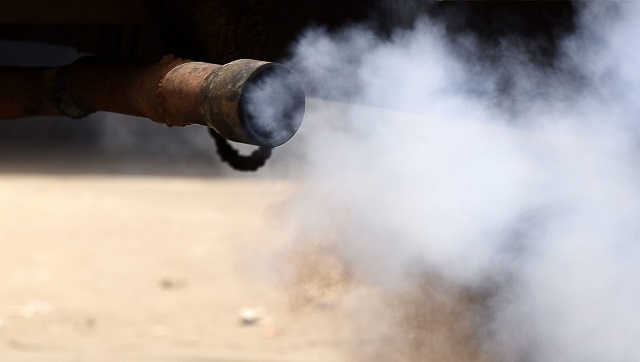
Kampala, Uganda | THE INDEPENDENT | The air quality in Kampala is worsening following the partial lifting of the lockdown.
Kampala had a high concentration of tinny air particles small enough to invade even the smallest airways and the air quality was six times lower than World Health Organization acceptable standards. This was attributed to dust from unpaved roads, fumes from cars and open burning of waste.
However in May during the lockdown which was imposed to curb the spread of COVID-19, the pollution levels dropped in Kampala, resulting in an improvement in air quality. This was because there was a reduction in the number of vehicles on the busy roads in the city as well as other pollutants which suddenly reduced emissions especially in the central business district.
On Tuesday, Boney Sensi, an official from Advocates for Public Spaces who has been at the forefront of fighting for greener spaces and creating awareness on air quality took us through the streets of Kampala.
Armed with a wearable, portable air quality monitor called Atmo Tube Pro, the team went back to selected areas of the city where they had assessed during the lockdown. They included the Old Taxi Park, Luwum street, Nakasero market, hardware city area and Nasser road.
At the old taxi park, the air quality which during the lockdown had improved up to 80 has already dropped to 46 on a scale of 100. In the area, construction is going on, several commuter taxis are all over the place most of them leaving trails of visible black smoke and the huge crowd of vendors and pedestrians and the dusty streets.
Luwumu street which has since been turned into a non-motorized area had the highest air quality during the lockdown with no vehicles passing and flourishing trees and grass that had been planted. However, the situation is now different dropping to 38.
Although the area is earmarked for non-motorized transport, it has already been taken over by bodaboda riders and trucks. Sensi argues that the city authorities have not sensitized people on why they put in place non-motorized sections in the city and who is allowed to use them.
Gerald Mukiibi, a city boda boda rider notes that it is inevitable to have the area free of motorists given the fact that there is no alternative road for traders and buyers to transport their merchandise.
At Nakasero market and hardware city, the air polluting was sinking below 20 leading to the air quality monitor to make an alert advising that people evacuate from the place immediately. At Nasser road, the situation was no better with the fumes from printing chemicals choking.
However, several people in the place seem to be not concerned about the matter. Arnold Gokyalya, a city trader says that nobody comes in the city to worry about the air quality. “Air quality? What is that? My friend, we are from lockdown I am here to look for money whether the air is good or not. I have worked in this city for years and no day came by and I went to the hospital because of air quality,” says Gokyalya.
Barbra Akwii, a health worker is aware of the dangers of air quality. She notes that at times she is afraid to be in Kampala because of bad air quality. However, going to the city centre seems to be inevitable for many who depend on their livelihood in the city.
Akwii says that people should have protective gears like the recommended masks. She also wants the KCCA authorities to plant more trees in and around the city suburbs in addition to the development of an organized transport system to reduce the number of fumes generated by vehicles.
Daniel Muhumuza Nuwabine, the KCCA spokesperson notes that they are trying to come up with air quality policy for the city. He however notes that a few steps towards reducing pollutants in the city have been made citing the on-going paving of several roads to reduce on dust. According to records, 70 percent of the roads in Kampala are unpaved.
Nuwabine further notes that they have told city dwellers and traders to stop burning waste from the city among other developments including the non-motorized transport system which he thinks that with time people will get used to it.
Exposure to poor air quality is one of the leading causes of death globally, greater than smoking or war.
The World Health Organization (WHO) says that air pollution is poisoning millions of children, stunting their brains and affecting their health in more ways than was previously suspected. It is estimated that over 85 people die in Uganda every day due to causes related to air pollution.
The threat to human health comes from exposure to near-invisible toxins that are present in polluted air as fine particles. The pollutants penetrate deep into the lungs and bloodstream and cause a range of diseases which include narrowing blood vessels which could result in a heart attack, chest pain, stroke, or other respiratory diseases such as asthma, chronic bronchitis, lung cancer, and pneumonia.
*****
URN
 The Independent Uganda: You get the Truth we Pay the Price
The Independent Uganda: You get the Truth we Pay the Price



